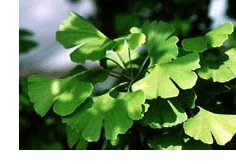 The use of herbs is a time-honored approach to strengthening the body and treating disease. Herbs, however, contain active substances that can trigger side effects and interact with other herbs, supplements, or medications. For these reasons, herbs should be taken with care, under the supervision of a practitioner knowledgeable in the field of botanical medicine.
The use of herbs is a time-honored approach to strengthening the body and treating disease. Herbs, however, contain active substances that can trigger side effects and interact with other herbs, supplements, or medications. For these reasons, herbs should be taken with care, under the supervision of a practitioner knowledgeable in the field of botanical medicine.
Because gingko decreases platelet aggregation (stickiness), there is some concern that it may increase risk of intracranial (brain) hemorrhage. In fact, there have been several reports of bleeding complications associated with ginkgo use. However, it is not clear whether ginkgo or another factor (such as the combination of ginkgo and blood-thinning medications including aspirin) caused the bleeding complications.
Researchers recently reviewed all of the high-quality published studies on ginkgo and mild memory impairment (in other words, people without Alzheimer's or other form of dementia), and concluded that ginkgo was significantly more effective than placebo in enhancing memory and cognitive function. Despite the encouraging findings, some researchers speculate that more high-quality research, involving larger numbers of people, is needed before ginkgo can be recommended as a memory enhancer to otherwise healthy adults.
Side effects from correctly administered Gingko Biloba usage are thought to be rare. Nonetheless, if you experience any of the following side effects, stop usage immediately and report them to your health care professional. The side effects of Ginkgo biloba include: allergic reaction as fever, swelling of blood vessels, edema, joint or muscle pain, bleeding in the eye or under the skin, clotting problems, headaches, irritability, nausea, restlessness and vomiting.
Tip:
Do not ingest Ginkgo biloba fruit. It contains butanoic acid that smells like rancid butter (which contains the same chemical) and an overdose of the fruit would cause poisoning because the fruit produces hydrogen cyanide as a side product. It is known that a dozen raw ginkgo fruits are toxic enough to kill a small child.
Pregnant and breastfeeding women should avoid using ginkgo preparations. In addition, ginkgo use should be discontinued at least 36 hours prior to surgery due to the risk of bleeding complications.
Do not take Ginkgo biloba, if you have a blood clotting disorder or allergic reactions to ginkgo products, or if you are currently taking any blood thinning medication on a regular basis.

